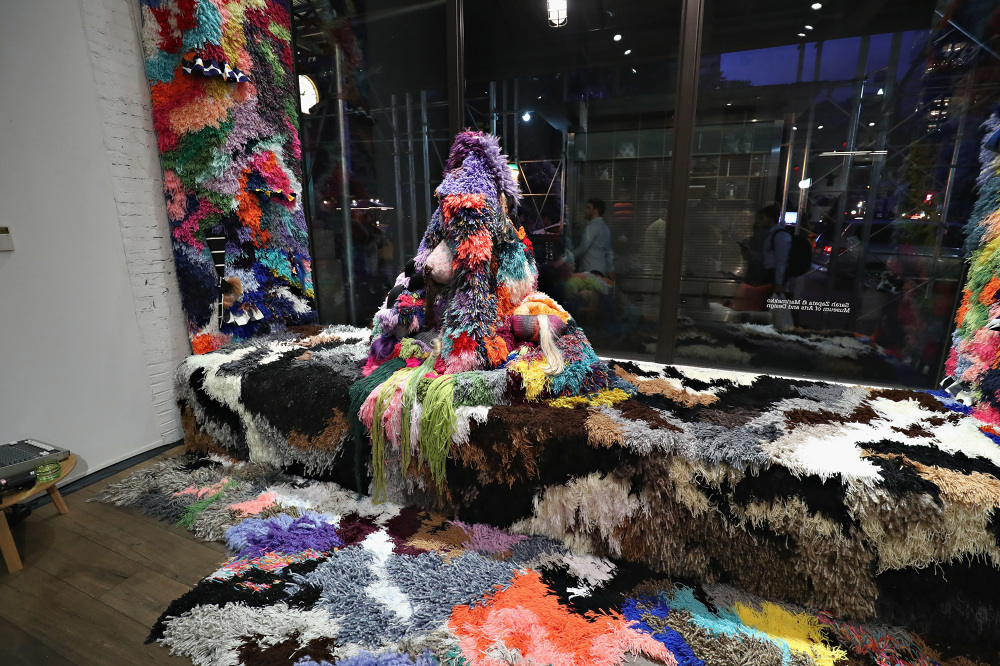For some, the past is like a comforting blanket in which to curl up. For textile artist Sarah Zapata, her ancestry is a still a blanket—but one that analyzes and critiques while it comforts. The New York City-based artist creates large-scale, woven sculptures that explore femininity “in its conception, materials, construction, everything,” she tells Creators. Using “accessible, engendered” materials like yarn, Zapata weaves a story of her own cultural and gender identity.
Zapata originally went to college to study fashion, but in her first semester she took a weaving class that “completely changed” her life. “Being half-Peruvian, I wanted to learn more about this culture, and weaving was my language for investigating my own history,” she says. “Hand weaving is such an important part of human history, specifically to women, and I wanted to examine where I fit within those confines.”
Videos by VICE

Photo: David Kirshoff
She became fascinated with the gendered ideas of traditional artisan crafts, like sewing, coiling, and weaving and attempted to create architectural pieces using traditional techniques. Her textile sculptures explore how traditional crafts—across both American and Peruvian cultures—are used by women to make political statements. She compared the “pussyhats” of the Women’s March to aripilleras, or colorful patchwork collages created “exclusively by women in Peru during a time of guerrilla occupation, and they expressed human rights abuses to the outside world.”

Photo: Cindy Ord
Many of her pieces are designed for site-specific installation. In her series If I Could—named after the traditional Peruvian song “El Condor Pasa” (as made famous by SImon and Garfunkel)—Zapata required viewers to take off their shoes before they could enter her fanciful, textile world.
Inside the installation was a colorful explosion of fabric that invited visitors to reach out and touch. “Since people already have an established relationship with textiles, they already want to touch everything” she explains, “so I wanted to give them a little something. Because people understand the materials, I hope they experience my work in a critical way. I wanted that show to be a space to create positive change, for individuals to engage with each other and emphasize the power of fantasy. I work in accessible materials in efforts to change perceptions and intentions.”

Photo: Justin Moran

Images courtesy Deli Gallery




Zapata’s work is on view as part of an all-female group show at Chamber Gallery in New York City. Her work will also be displayed at the Hudson Valley LGBTQ Center starting June 11. To view more of her work, visit her website.
Related:
Street Artist Tags Hawaii with Yarn Graffiti
These Tiny Baby Head Sculptures Are Freaking Us Out
The Best Latin American Artists Working Today Get a Group Show




